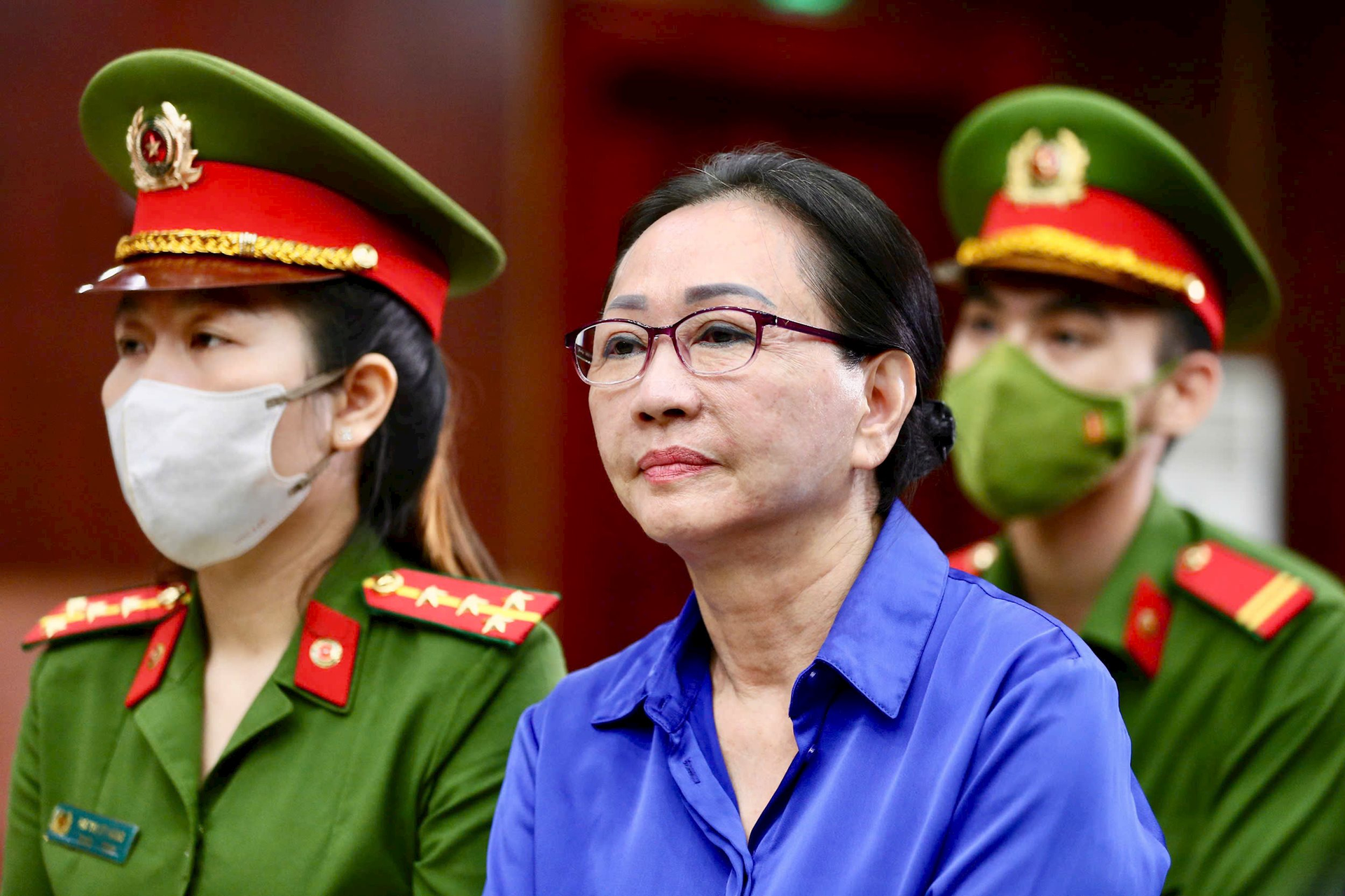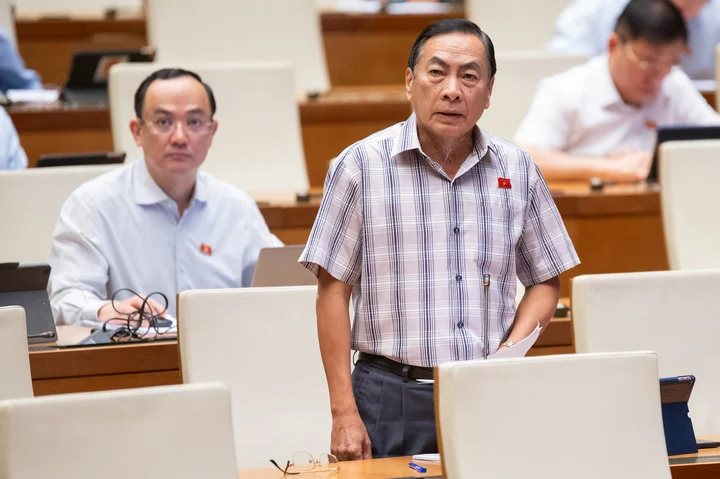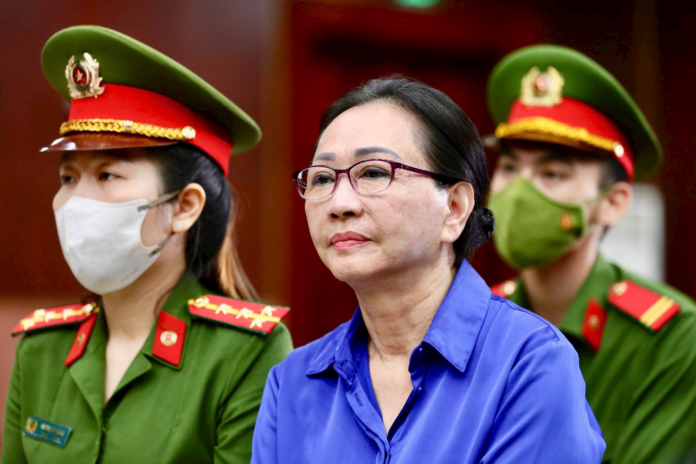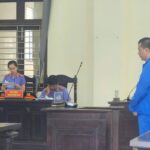
Image: Hoang Trieu (Nguoi Lao Dong)
On May 27, at the 9th session of the 15th National Assembly, delegates discussed the draft Law on Amending and Supplementing a Number of Articles of the Criminal Code.
Regarding the proposed amendments on the death penalty, the draft Law considers removing the death penalty and replacing it with life imprisonment without parole (while ensuring the isolation of offenders from society) for 8 out of 18 offenses (44.44%) that currently carry the death penalty in the current Criminal Code.
The 8 offenses with the death penalty in the current Criminal Code that are proposed to be replaced with life imprisonment without parole are as follows:
– Offenses against the people’s power (Article 109)
– Offenses of destroying the material-technical basis of the Socialist Republic of Vietnam (Article 114)
– Offenses of producing and trading counterfeit medicines and medical equipment (Article 194)
– Offenses against peace and war crimes (Article 421)
– Espionage (Article 110)
– Illicit drug trafficking (Article 250)
– Embezzlement (Article 353)
– Bribery (Article 354)
Additionally, it is proposed to add a provision to not carry out the death penalty for those who are in the terminal stage of cancer, HIV-positive individuals who have progressed to AIDS, and those with opportunistic infections.

Delegate Pham Van Hoa (Image: Quochoi.vn)
According to VOV, Delegate Pham Van Hoa from Dong Thap Province agreed with the removal of the death penalty for 5 out of the 8 offenses. However, for the offenses of embezzlement, bribery, and illicit drug trafficking, he supported the opinion of Delegate Phong Lan from Ho Chi Minh City to retain the death penalty.
Mr. Hoa justified his opinion by emphasizing the need for deterrence and prevention. He pointed out that there has never been a case of execution for embezzlement or corruption-related offenses. However, in recent cases, such as the SCB case, the prosecution has sought the death penalty. Notably, when faced with the possibility of a death sentence, the defendants’ families voluntarily returned assets to mitigate the consequences, hoping for reduced sentences.
Mr. Hoa argued that retaining the death penalty for these two offenses serves as a deterrent and a warning, especially as the Party and State are resolute in fighting and severely punishing corruption. Even if the death penalty is not carried out, the sentence itself creates pressure for the offenders to compensate for the damages, which could then lead to a reduction in their sentences to life imprisonment, 20 years, or 15 years.
“For example, in the case of Truong My Lan and SCB, the estimated loss is in the trillions of dong. If we recover the massive assets involved in this case, we could build 50% of the North-South high-speed railway,” said Mr. Hoa.
Delegate Nguyen Thanh Sang from Ho Chi Minh City also cited the emblematic case of Truong My Lan at SCB.
According to Delegate Sang, embezzlement is no longer confined to the public sector but has spread to the private sector as well. Through sophisticated schemes, the accused manipulated and controlled the banking system, causing extremely severe consequences. Despite efforts to rectify the situation, the losses incurred are immeasurable.
Regarding bribery, Delegate Sang maintained the same viewpoint. He believes that retaining the death penalty sends a powerful message to perpetrators and helps improve the effectiveness of asset recovery, thereby safeguarding the reputation of the political system.
Previously, on April 21, the Ho Chi Minh City High-Level People’s Court upheld the sentence in the second phase of the trial. Truong My Lan’s sentence was reduced from life imprisonment to 20 years for “fraudulent appropriation of property,” with an additional 12 years for “money laundering” and 8 years for “illegal cross-border currency transportation.”
In the first phase of the trial, Truong My Lan was initially sentenced to death. Combining the sentences from both phases, Truong My Lan’s final sentence is death.
In terms of civil responsibility, the two verdicts ordered Truong My Lan to compensate the bondholders for a total of more than 30,000 billion VND and SCB for more than 677,000 billion VND.
“Citing the Zhang Meilan case, delegates argued against abolishing the death penalty for embezzlement.”
“Regarding the SCB Bank case, where the People’s Procuracy proposed the death sentence for Truong My Lan, her family paid for reparations a few days later to redeem her…” as stated by Delegate Pham Van Hoa.
Crafting and Trading Counterfeit Medicines: A Heinous Act of Mass Murder
“The severe consequences of counterfeit medicine and vaccine production and trafficking cannot be overstated. We must take a firm stand against these heinous crimes. To deter such despicable acts, lawmakers are proposing the harshest penalties, including the death sentence, for those found guilty of producing and trading fake food products, particularly fake milk and supplements.”
Why Were Chairman of the Board Nguyễn Đức Nam and CEO Nguyễn Thị Quỳnh Nga Arrested?
“Nam Nguyen, Chairman of Sona Corporation, and four other suspects have been charged and detained for violating accounting regulations, resulting in severe consequences as outlined in Article 221 of the 2015 Penal Code.”



















